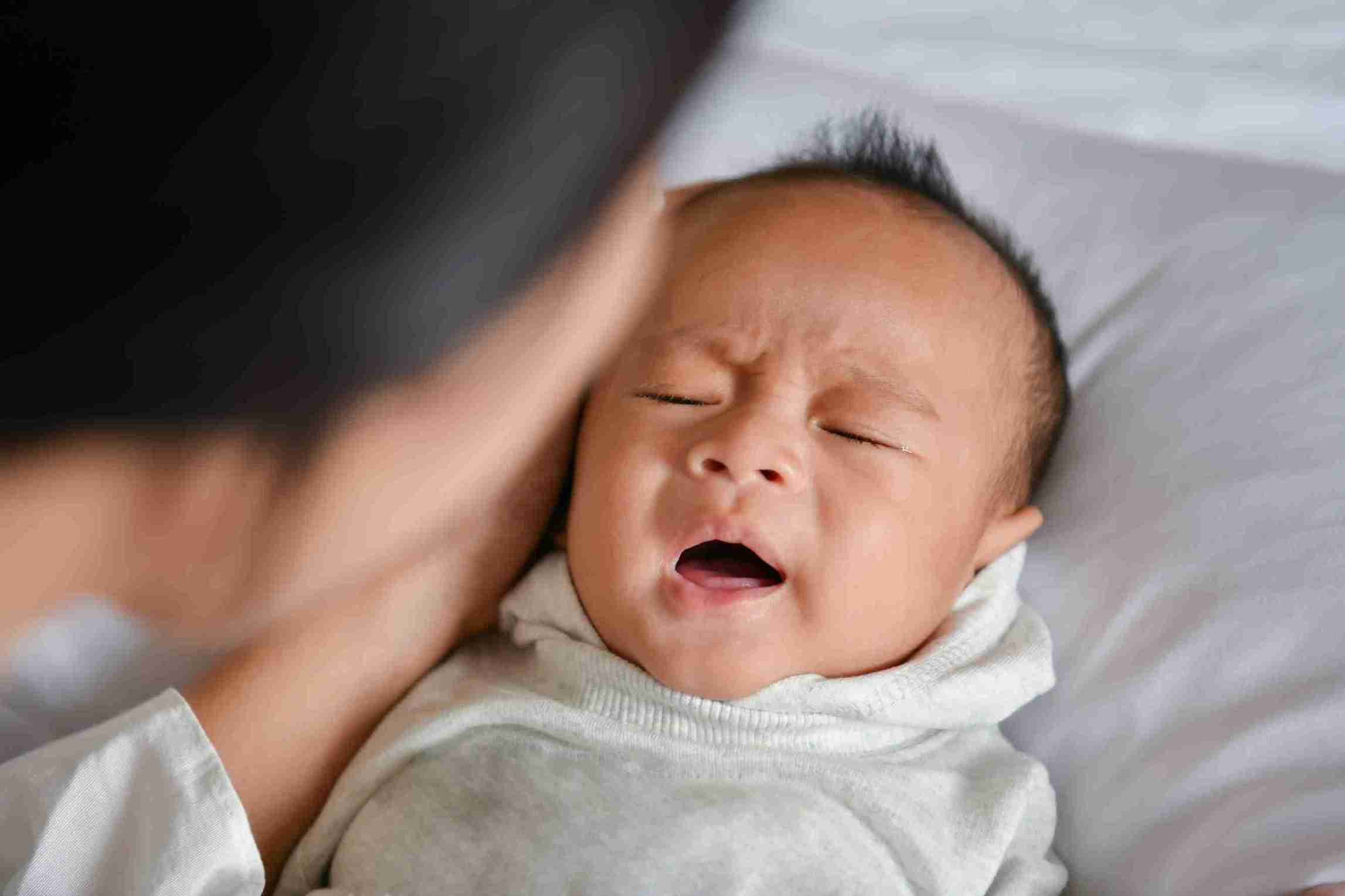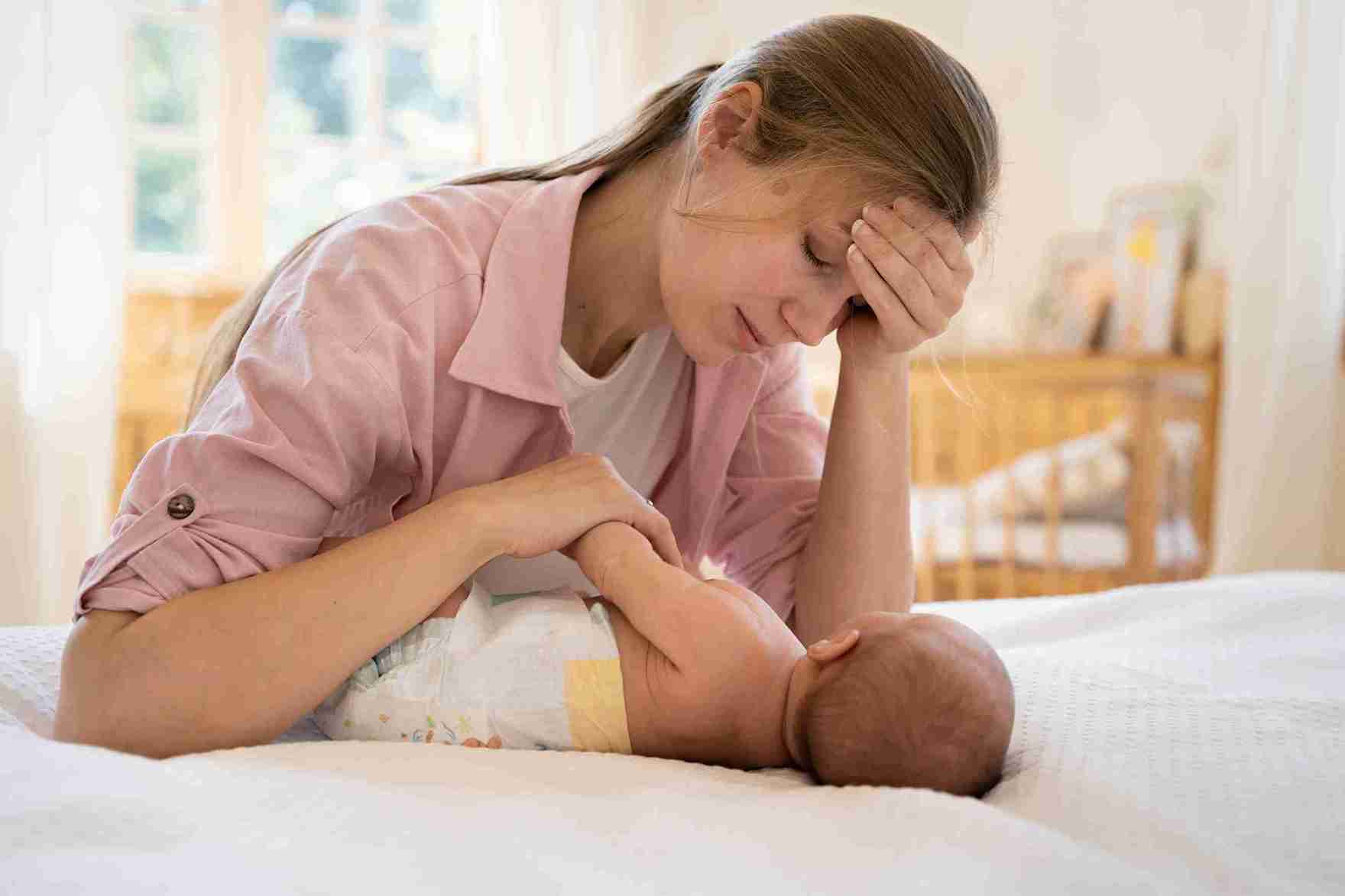
New parents experience a shock of worry at every little noise, movement, or sign their baby produces. One of the most frequent is excessive sneezing. If you've found yourself worried about coughing and sneezing in newborns, be assured, you are not alone.
The good news is that, in most cases, sneezing in newborns is a completely normal occurrence. It’s often just a sign that their little bodies are adjusting to life outside the womb. However, when paired with other symptoms, it might signal something more.
In this article, we’ll explore why an infant sneezes a lot, what causes coughing and sneezing in newborns and when to worry about newborn congestion or other related issues.

Sneezing is a protective reflex to clear the nasal passages, and newborns do a lot of it for some very practical reasons:
● Reflex Clearing: At birth, babies can still have residual amniotic fluid or mucus in their nose. Sneezing serves to naturally clear it out.
● Small Nasal Passages: The nasal passages of a newborn are small and susceptible to obstruction from even the slightest speck of dust or milk droplet.
● Environmental Adjustment: After spending nine months in the uterus, a baby's body begins to transition to living in the air, where it encounters odours and small irritants. Sneezing is how they adjust.
So if your infant sneezes a lot but otherwise appears healthy, it's probably just their body doing its job.
Aside from normal reflexes, a number of environmental factors can cause sneezing:
● Dry Air or Temperature Changes: Conditioners or heaters may dry out nasal passageways, causing sneezing.
● Milk in the Nose: At times, while breastfeeding or bottle-feeding, a little milk can go up into the baby's nasal passage and trigger sneezing.
● Non-Infectious Nasal Congestion: Infants often experience harmless stuffiness, which can lead to sneezing without them being ill.
● Dust, Fabric Fibres, or Perfumes: Babies are sensitive to small irritants that do not bother adults at all.
These daily conditions ensure that occasional coughing and sneezing in new babies isn't always an indication of sickness.
Although sneezing is normal, coughing requires more observation. Occasional coughing is fine, but persistent coughing, particularly when combined with other symptoms, is a concern.
● Colds or Viral Infections: Sneezing accompanied by coughing and a runny nose may indicate your infant has developed a light cold.
● RSV (Respiratory Syncytial Virus): A frequent and sometimes severe virus in infants younger than six months. Watch for coughing, wheezing and laboured breathing.
● Allergies: Even though true allergies are rare in newborns, they can occur if there is a strong family history.
If coughing and sneezing in newborns are accompanied by other signs such as poor feeding or fever, it is time to talk to your paediatrician.

A few congestions are normal in infants. But know when to worry about newborn congestion. These are some signs that you should consider consulting a doctor:
● Laboured Breathing or Wheezing
● Fever (any temperature over 100.4°F or 38°C in infants under 3 months)
● Lethargy or Poor Feeding
● Prolonged Cough
● Blue Lips or Fingertips (indicative of an oxygen problem)
● Yellow or Green Nasal Discharge (may be a sign of infection)
If your baby's sneezing is without severe symptoms, these are some safe and comforting things you can do:
● Use a Humidifier: Adding moisture to the air helps soothe dry nasal passages, especially in air-conditioned or heated spaces.
● Clean the Environment: Keep the environment dust-free, smoke-free and away from strong odours and pet dander where your baby sleeps.
● Saline Nasal Drops: These loosen mucus and can be combined with a bulb syringe to clear your baby's nose gently (only on a paediatrician's recommendation).
● Keep Baby Hydrated: Regular breastfeeding or formula feeding keeps the mucus thin and easier to deal with.
These habits can avoid irritation and stop coughing and sneezing in newborn babies from worsening.
At Cloudnine, your newborn's health is our top concern. Our neonatal and paediatric services are crafted with empathy, clinical experience and up-to-date diagnostics that address even the most minute issues with utmost care. From treating mild symptoms such as sneezing to specialised care for respiratory illnesses, Cloudnine combines a team of experienced paediatricians and dedicated care staff who work in tandem with you at every step. From day one, you’ll find comfort in knowing that your baby’s health is in the safest hands.

If your infant sneezes a lot, it’s usually nothing to be alarmed about. Sneezing is a natural, healthy reflex that helps newborns adjust to their environment. However, if sneezing is accompanied by coughing, fever, or laboured breathing, it’s essential to seek timely medical attention.
Trust your gut and don't delay reaching your paediatrician. Early treatment makes all the difference, not just your baby's health, but also your peace of mind.
For expert paediatric guidance or to book a consultation, visit Cloudnine, where each newborn is given care supported by confidence, expertise and affection.

You can't prevent natural sneezing, but having clean air, a humidifier and saline drops can ease it. For coughing, always consult a paediatrician before administering any remedy.

Yes, breast milk contains antibodies that can help babies ward off infections better.

Mild cold symptoms typically last between 5 and 10 days. See your doctor if symptoms persist or worsen.

For infants under 6 months, breastfeeding or formula feeding is as usual. For older babies, give them warm, soft foods such as mashed vegetables or porridge, according to their age.